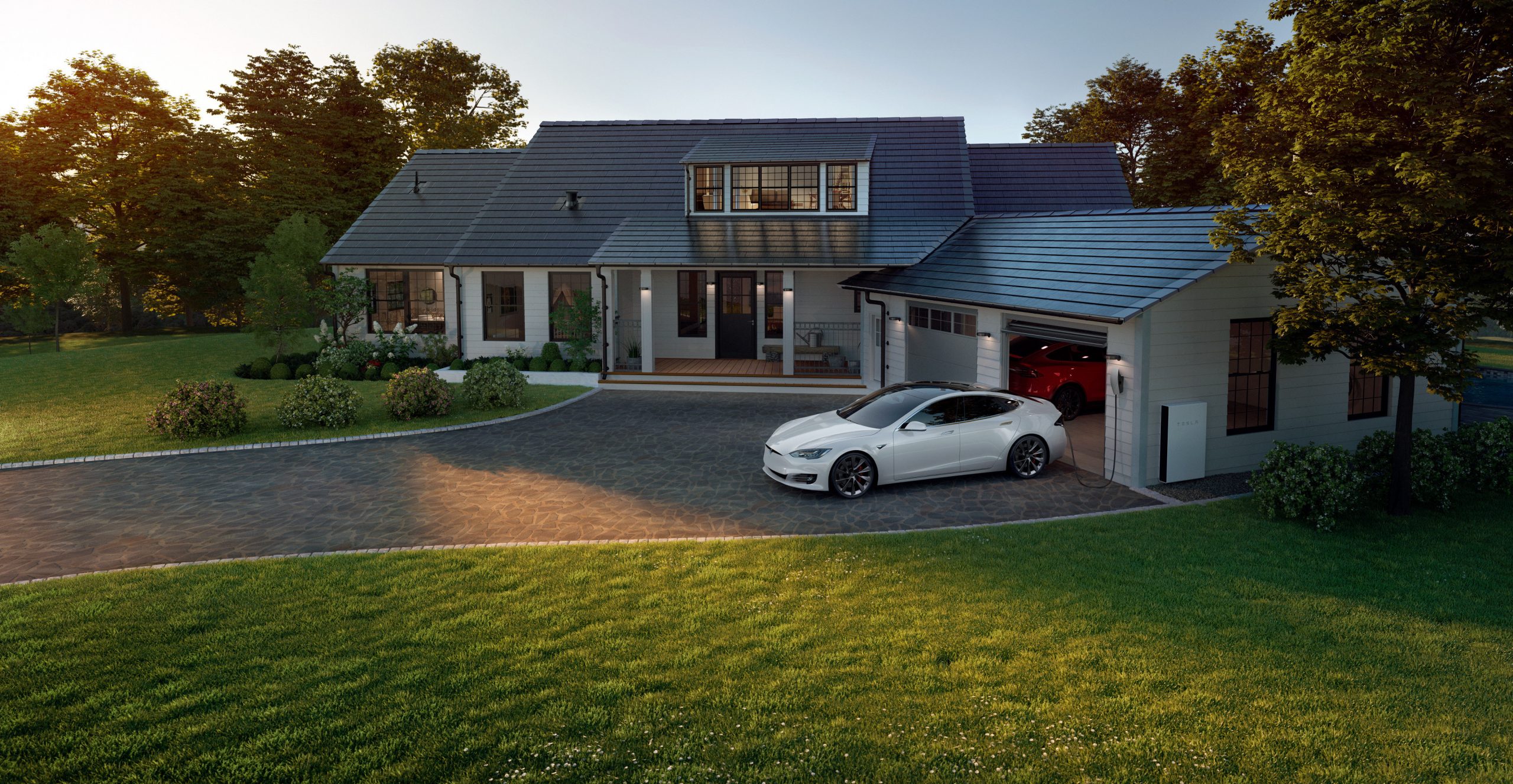
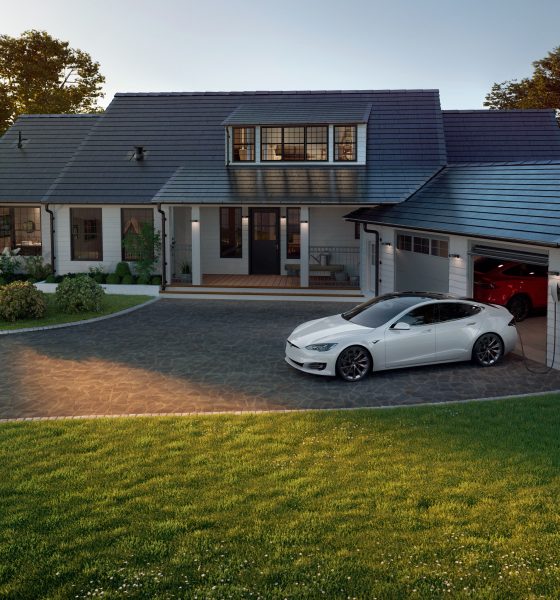
Energy
Tesla Effect: Japan’s AC giant innovates to prepare for Elon Musk’s HVAC project
There’s something remarkable about the “Tesla Effect” in the way that it fosters innovation not only on segments that the company is already competing in but in markets that the electric car and energy company is still yet to enter. This seems to be the case in the home HVAC segment, with a recent report from Japan stating that air conditioner maker Daikin is now innovating its business model to prepare for the likely entrance of Tesla into the home HVAC space.
According to a Nikkei Asia report, Daikin has launched a smartphone-based air conditioning service in Tanzania, Africa, that would allow users to turn on their AC units only on days when they need it. Under this business model, customers would no longer need to purchase their actual air conditioners. Instead, they would simply have to pay an initial installation fee of $77 and about $1.40 per day’s use of the machines.
Taro Mitani, Daikin’s head of collaboration with startups, noted that the new business strategy is part of the company’s attempt to try new things and embrace more digital solutions. “We wanted to try a new operational model,” he said, noting that the plan is to get 50,000 subscriptions to start, possibly for businesses like beauty parlors and restaurants.
The unique subscription model came about as a result of a conversation between Daikin Chairman Noriyuki Inoue and Satoshi Akita, the CEO of Wassha, a startup that the air conditioner maker has teamed up with for its fee collections. While listening to Akita’s experiences in Africa, the Daikin Chairman decided to break away from the company’s traditional business model of just focusing on manufacturing and sales.
There was reportedly a sense of urgency in Inoue’s decision, and part of this is Elon Musk’s comments about Tesla potentially entering the home HVAC space. Back in September, Musk told investors that an extremely efficient smart home HVAC system is a “pet project” that he would love to explore. “You could really make a way better home HVAC [heating, ventilation and air conditioning] system that’s really quiet and superefficient,” Musk said.
But it is not just the presence of the Tesla brand that existing players like Daikin would have to deal with if the EV maker does enter the residential appliances segment. Tesla, after all, is expected to explore synergies between its many businesses that would allow the company to combine products like Elon Musk’s planned home HVAC system with the company’s existing electric vehicles and energy storage products. This bundle of services, which could create an “ecosystem” of sorts, is something that Daikin does not have. And if Apple’s success is any indication, an ecosystem of products could definitely disrupt an established market.
Daikin President Masanori Togawa highlighted the importance of the company’s digital transformation in the face of potential disruptors like Tesla. “The key difference between winners and losers will be over who can transform their business with digital technology,” Togawa said. And considering how products like the Tesla Model 3 have practically sucker-punched several veteran automakers from the US and Europe, the Daikin President’s comments definitely hit the mark.
Don’t hesitate to contact us with account tips. Just send a message to tips@teslarati.com to give us a heads up.

Energy
Tesla meets Giga New York’s Buffalo job target amid political pressures
Giga New York reported more than 3,460 statewide jobs at the end of 2025, meeting the benchmark tied to its dollar-a-year lease.
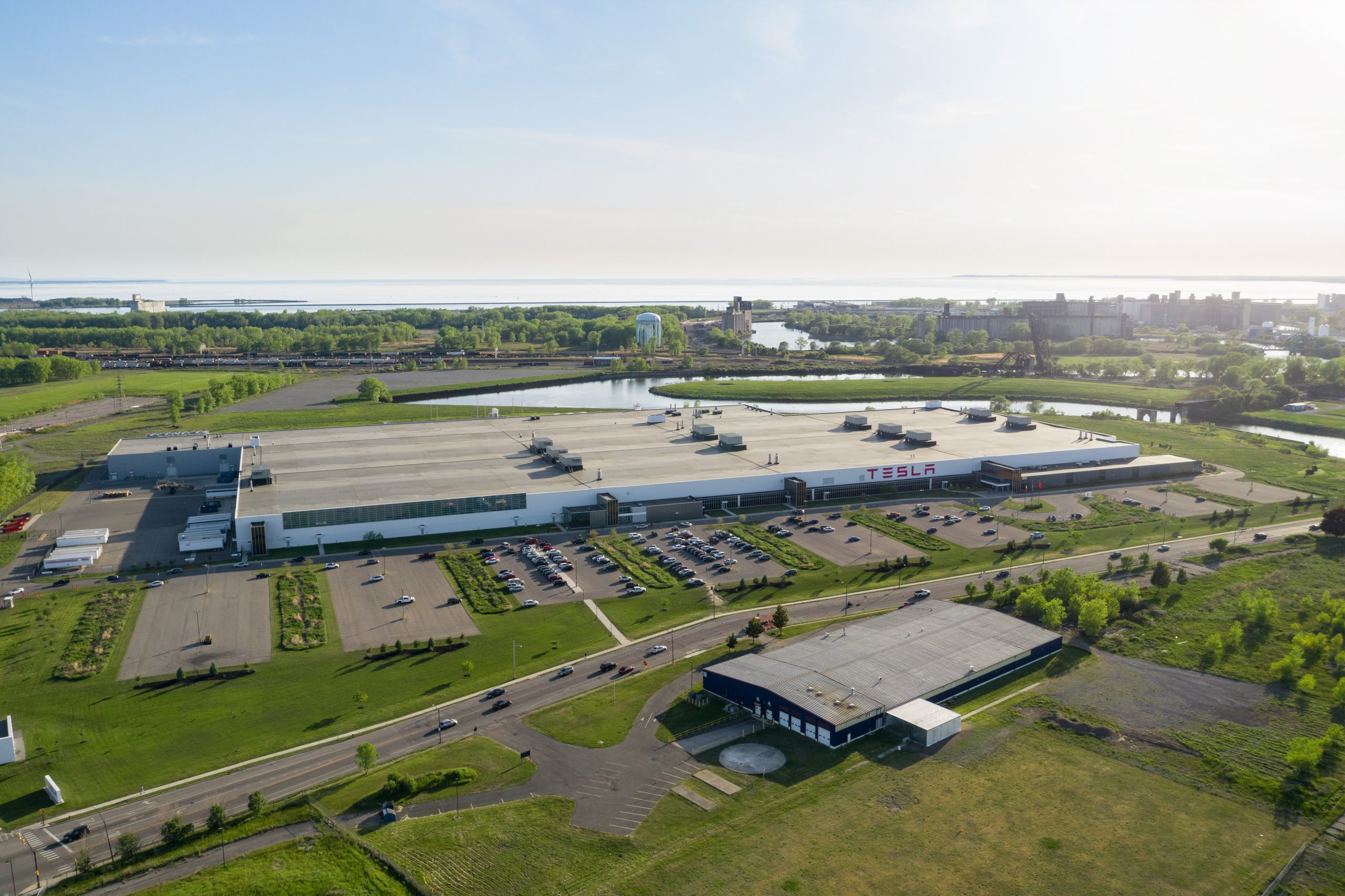
Tesla has surpassed its job commitments at Giga New York in Buffalo, easing pressure from lawmakers who threatened the company with fines, subsidy clawbacks, and dealership license revocations last year.
The company reported more than 3,460 statewide jobs at the end of 2025, meeting the benchmark tied to its dollar-a-year lease at the state-built facility.
As per an employment report reviewed by local media, Tesla employed 2,399 full-time workers at Gigafactory New York and 1,060 additional employees across the state at the end of 2025. Part-time roles pushed the total headcount of Tesla’s New York staff above the 3,460-job target.
The gains stemmed in part from a new Long Island service center, a Buffalo warehouse, and additional showrooms in White Plains and Staten Island. Tesla also said it has invested $350 million in supercomputing infrastructure at the site and has begun manufacturing solar panels.
Empire State Development CEO Hope Knight said the agency was “very happy” with Giga New York’s progress, as noted in a WXXI report. The current lease runs through 2029, and negotiations over updated terms have included potential adjustments to job requirements and future rent payments.
Some lawmakers remain skeptical, however. Assemblymember Pat Burke questioned whether the reported job figures have been fully verified. State Sen. Patricia Fahy has also continued to sponsor legislation that would revoke Tesla’s company-owned dealership licenses in New York. John Kaehny of Reinvent Albany has argued that the project has not delivered the manufacturing impact originally promised as well.
Knight, for her part, maintained that Empire State Development has been making the best of a difficult situation.
“(Empire State Development) has tried to make the best of a very difficult situation. There hasn’t been another use that has come forward that would replace this one, and so to the extent that we’re in this place, the fact that 2,000 families at (Giga New York) are being supported through the activity of this employer. It’s the best that we can have happen,” the CEO noted.
Energy
Tesla launches Cybertruck vehicle-to-grid program in Texas
The initiative was announced by the official Tesla Energy account on social media platform X.
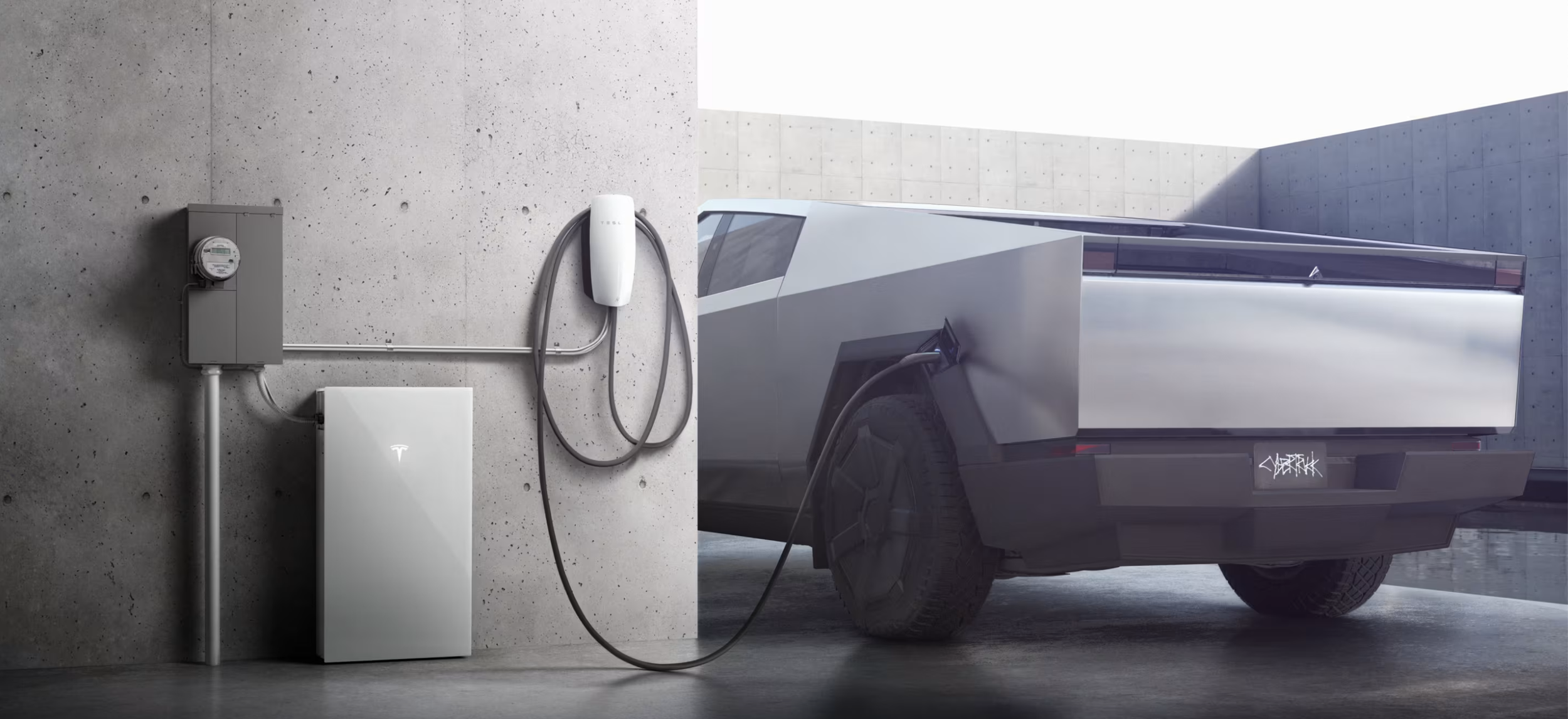
Tesla has launched a vehicle-to-grid (V2G) program in Texas, allowing eligible Cybertruck owners to send energy back to the grid during high-demand events and receive compensation on their utility bills.
The initiative, dubbed Powershare Grid Support, was announced by the official Tesla Energy account on social media platform X.
Texas’ Cybertruck V2G program
In its post on X, Tesla Energy confirmed that vehicle-to-grid functionality is “coming soon,” starting with select Texas markets. Under the new Powershare Grid Support program, owners of the Cybertruck equipped with Powershare home backup hardware can opt in through the Tesla app and participate in short-notice grid stress events.
During these events, the Cybertruck automatically discharges excess energy back to the grid, supporting local utilities such as CenterPoint Energy and Oncor. In return, participants receive compensation in the form of bill credits. Tesla noted that the program is currently invitation-only as part of an early adopter rollout.
The launch builds on the Cybertruck’s existing Powershare capability, which allows the vehicle to provide up to 11.5 kW of power for home backup. Tesla added that the program is expected to expand to California next, with eligibility tied to utilities such as PG&E, SCE, and SDG&E.
Powershare Grid Support
To participate in Texas, Cybertruck owners must live in areas served by CenterPoint Energy or Oncor, have Powershare equipment installed, enroll in the Tesla Electric Drive plan, and opt in through the Tesla app. Once enrolled, vehicles would be able to contribute power during high-demand events, helping stabilize the grid.
Tesla noted that events may occur with little notice, so participants are encouraged to keep their Cybertrucks plugged in when at home and to manage their discharge limits based on personal needs. Compensation varies depending on the electricity plan, similar to how Powerwall owners in some regions have earned substantial credits by participating in Virtual Power Plant (VPP) programs.
Cybertruck
Tesla updates Cybertruck owners about key Powershare feature
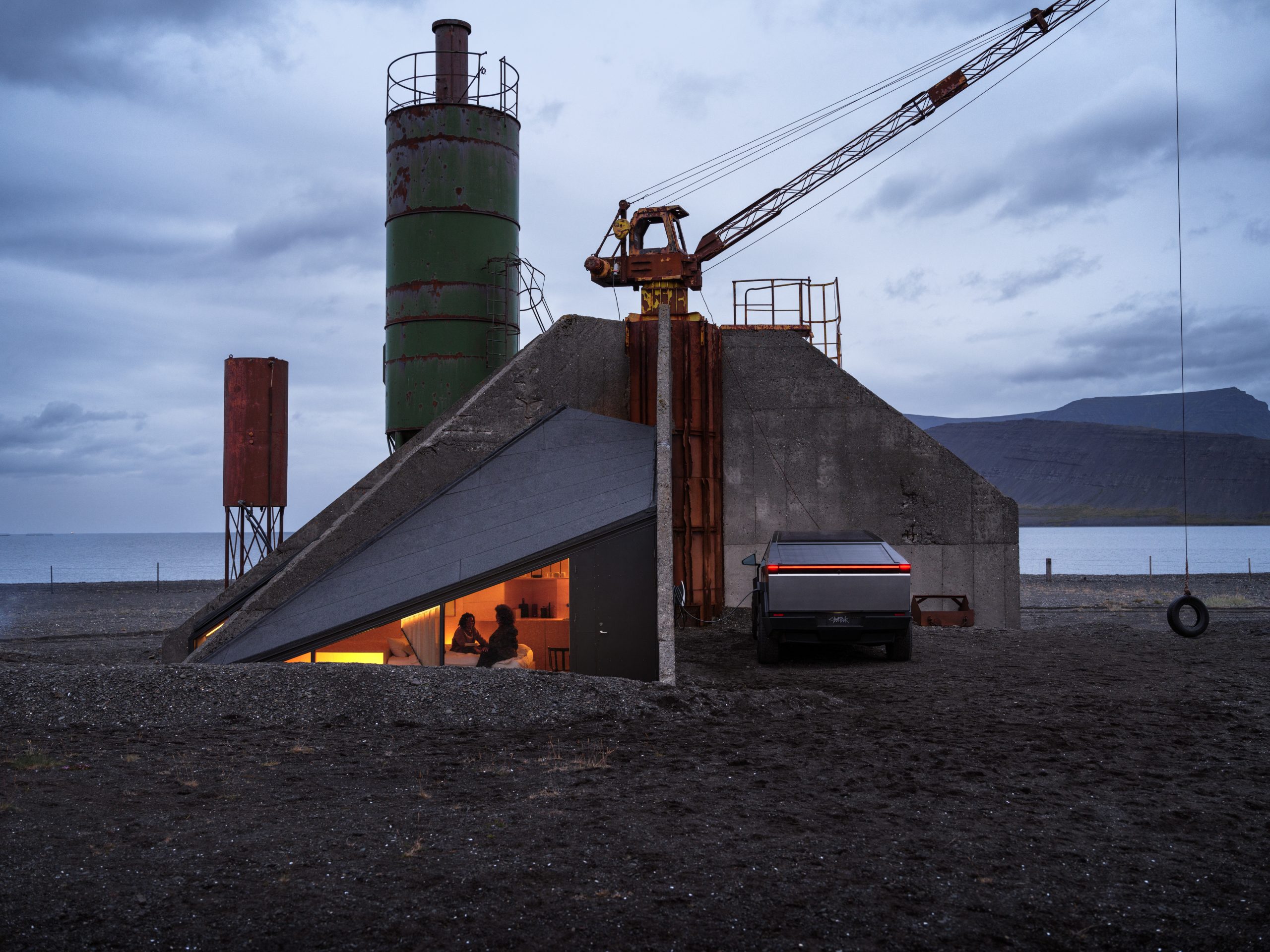
Tesla is updating Cybertruck owners on its timeline of a massive feature that has yet to ship: Powershare with Powerwall.
Powershare is a bidirectional charging feature exclusive to Cybertruck, which allows the vehicle’s battery to act as a portable power source for homes, appliances, tools, other EVs, and more. It was announced in late 2023 as part of Tesla’s push into vehicle-to-everything energy sharing, and acting as a giant portable charger is the main advantage, as it can provide backup power during outages.
Cybertruck’s Powershare system supports both vehicle-to-load (V2L) and vehicle-to-home (V2H), making it flexible and well-rounded for a variety of applications.
However, even though the feature was promised with Cybertruck, it has yet to be shipped to vehicles. Tesla communicated with owners through email recently regarding Powershare with Powerwall, which essentially has the pickup act as an extended battery.
Powerwall discharge would be prioritized before tapping into the truck’s larger pack.
However, Tesla is still working on getting the feature out to owners, an email said:
“We’re writing to let you know that the Powershare with Powerwall feature is still in development and is now scheduled for release in mid-2026.
This new release date gives us additional time to design and test this feature, ensuring its ability to communicate and optimize energy sharing between your vehicle and many configurations and generations of Powerwall. We are also using this time to develop additional Powershare features that will help us continue to accelerate the world’s transition to sustainable energy.”
Owners have expressed some real disappointment in Tesla’s continuous delays in releasing the feature, as it was expected to be released by late 2024, but now has been pushed back several times to mid-2026, according to the email.
Foundation Series Cybertruck buyers paid extra, expecting the feature to be rolled out with their vehicle upon pickup.
Cybertruck’s Lead Engineer, Wes Morrill, even commented on the holdup:
As a Cybertruck owner who also has Powerwall, I empathize with the disappointed comments.
To their credit, the team has delivered powershare functionality to Cybertruck customers who otherwise have no backup with development of the powershare gateway. As well as those with solar…
— Wes (@wmorrill3) December 12, 2025
He said that “it turned out to be much harder than anticipated to make powershare work seamlessly with existing Powerwalls through existing wall connectors. Two grid-forming devices need to negotiate who will form and who will follow, depending on the state of charge of each, and they need to do this without a network and through multiple generations of hardware, and test and validate this process through rigorous certifications to ensure grid safety.”
It’s nice to see the transparency, but it is justified for some Cybertruck owners to feel like they’ve been bait-and-switched.








